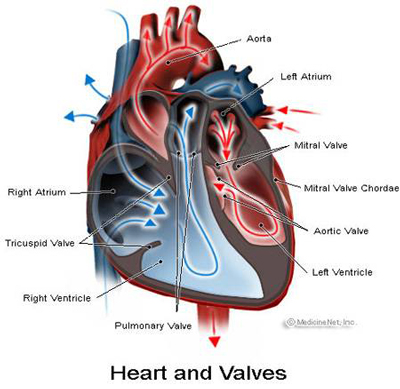What is valvular heart disease?
Valvular heart disease is caused by either obstruction of blood flow through the heart valve (stenosis) or leaking of the heart valve (regurgitation). Severe stenosis or regurgitation impose a significant strain “overload” on the heart leading to abnormal thickening, dilatation and reduced contractility of the heart muscle. Patients with valvular heart disease have an increased risk of heart failure, arrhythmia, stroke and infection of the abnormal valve (endocarditis).
How is cardiac valve function evaluated?
Abnormal valve function may cause symptoms such as breathlessness and fatigue. Turbulent blood flow through the abnormal valve causes a murmur which can be heard by your physician with a stethoscope. Valve function is best evaluated by echocardiography.
What is the treatment for valvular heart disease?
Mild valvular heart disease is treated medically. Severe valvular heart disease may require cardiac surgery. During open-heart surgery, the valve may be surgically repaired or replaced with an artificial valve. There are also novel interventional cardiology procedures for treating selected patients with severe valvular heart disease.
What does valvular heart disease look like on Echo?
A heart murmur was discovered in this patient who had breathlessness. Echo demonstrated abnormally thickened mitral and aortic valves with a vegetation (infective endocarditis) on the mitral valve. Color Doppler confirmed regurgitation (leaking) of both valves and stenosis of the mitral valve. The patient was treated with antibiotics and underwent successful open-heart surgery with valve replacement.


